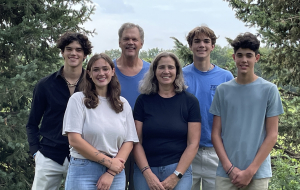Go and Grow Special Projects - Wintermantel
This project is intended to help Lohtuko church leaders to fulfill the Great Commission, “Go and make disciples” (Matthew 28:19). To assist in this work, this project will help provide study Bibles and other resources to pastors and church planters. In great part the Lohtuko people have maintained the same farming practices for centuries. Through this project we will partner with local churches to provide demonstration projects for animal and crop agriculture, seeking to introduce improved farming practices.
GO
There are virtually no Biblical or theological resources available to local church leaders in our region of South Sudan. This Special Project will help provide study Bibles, and other Biblical and discipleship resources to men and women who seek to provide leadership in existing churches, and especially to those desiring to help plant new churches throughout the region. While some Bibles and resources may be awarded as gifts upon completion of study programs, etc., others will be sold at a reduced cost.
GROW
Animals: Like the Lohtuko people, their cattle, goats, sheep, and chickens have suffered through decades of war. They are worm-ridden, often diseased, under-nourished and scrawny. The intent of the “GROW” portion of this Special Project will help introduce the Lohtuko people to cultural practices that will help them to better care and provide for their animal resources. Enhanced animal production will allow them to improve their family’s diets, and provide animals for sale.
Crops: The farming practices of the Lohtuko have seemingly remain unchanged for centuries. Each spring they burn the fields and scorch the soil, depriving the soil of much needed compost/organic matter. Then they hoe the barren soil planting their crops of sorghum, cassava, corn and some beans.


